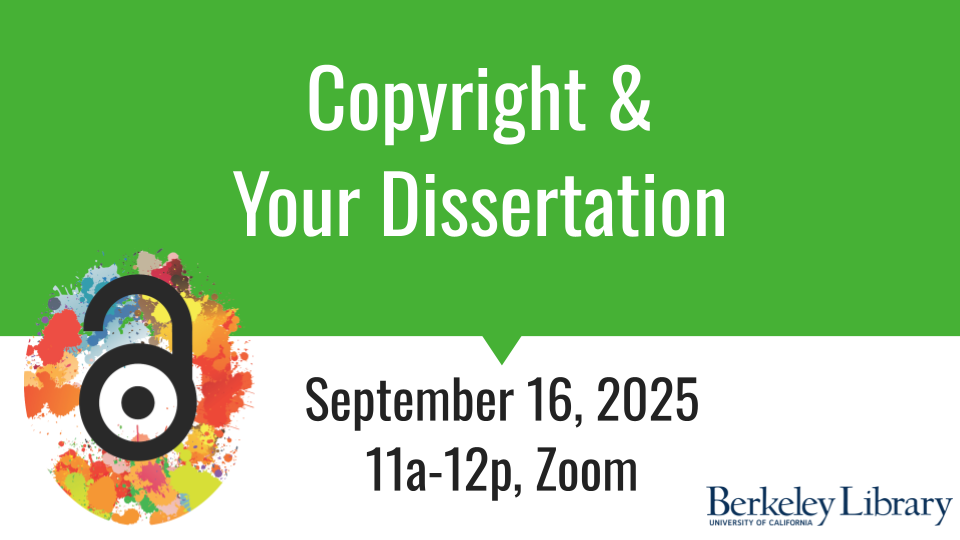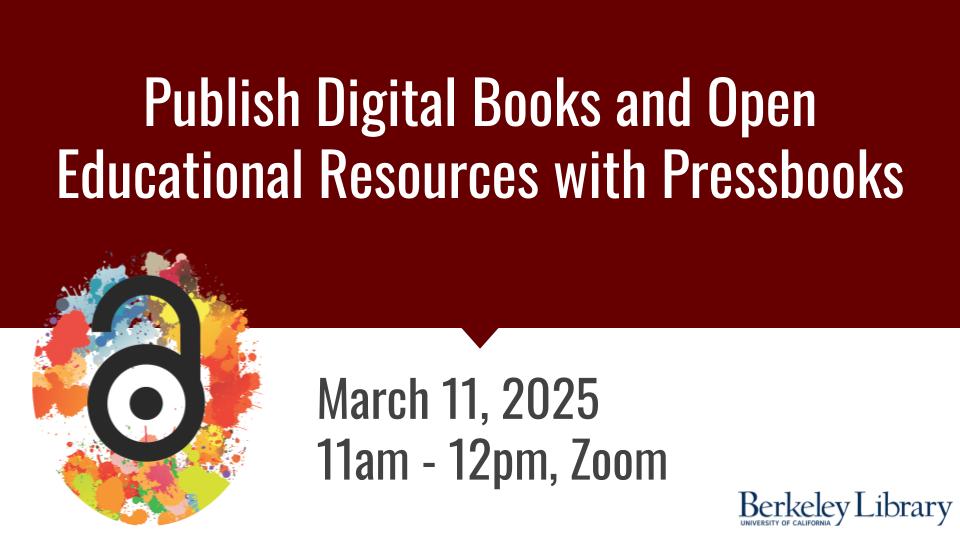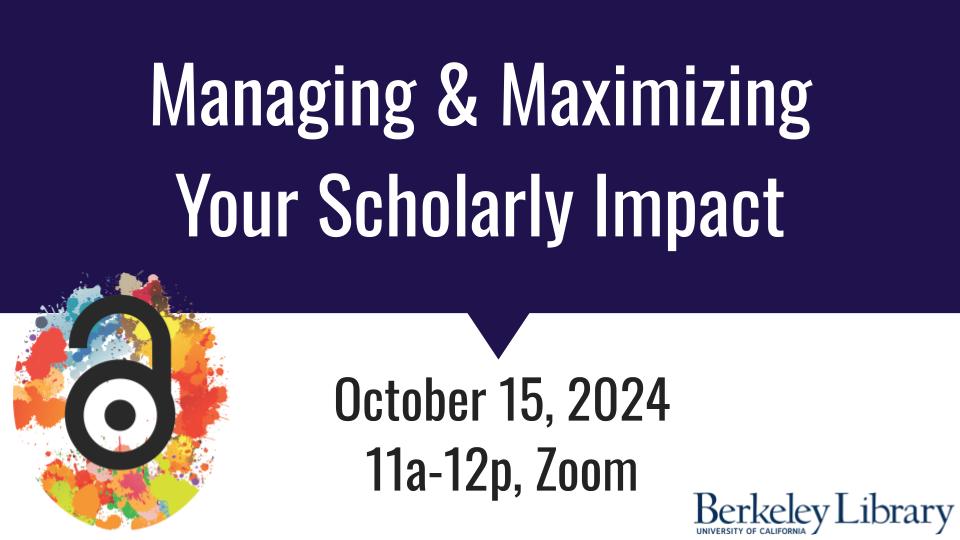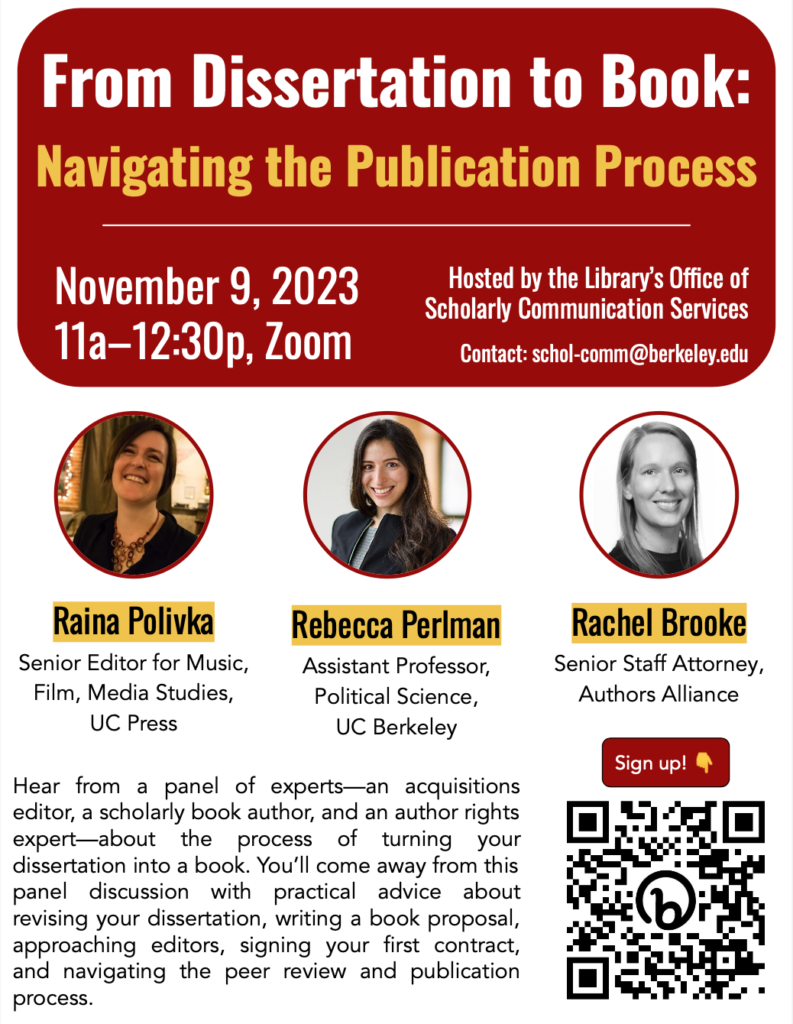
UC Berkeley Library continues to support a variety of ways our authors can participate in open access (OA) publishing to contribute to UC’s research and teaching mission. This mission includes the practice of “transmitting advanced knowledge” by helping faculty, researchers, and students create and share their scholarship with peers, and the world.
While the system of scholarly publishing includes traditional publications such as peer-reviewed academic articles, conference proceedings, data sets, and more, read on below for some updates on how UC Berkeley Library—and the broader University of California system—is supporting authors in publishing open access books.
Berkeley’s Support for Open Access Books
While many UC authors create academic journal articles as an output of their research, others focus on producing a scholarly book. Book authors can realize a variety of benefits with open access publishing, including increasing the reach of their scholarship, building relationships within their academic community, garnering more citations, making their scholarly books more affordable for students, improving accessibility for print-disabled users, and more.
UC Berkeley is supporting authors who wish to publish their books open access. The library provides funding assistance and access to publishing platforms and tools for UCB authors to make their books OA.
Berkeley Research Impact Initiative
The Berkeley Research Impact Initiative (BRII) is a program to foster broad public access to the work of UCB scholars by encouraging the Berkeley community to take advantage of open access publishing opportunities—including books and journal articles. BRII is the local open access fund that helps defray the costs associated with publishing open access books and research articles. For books, BRII can contribute up to $10,000 per book for it to be published open access. Below are recent UCB-authored books published with the assistance of BRII.
- Movable Londons: Performance and the Modern City, by Julia H Fawcett
- The Values of the Vernacular: Essays in Medieval Romance Languages and Literatures in Dialogue with Simon Gaunt, edited by Henry Ravenhall, Hannah Morcos, Maria Teresa Rachetta, Natasha Romanova, Simone Ventura
- Understanding Child Welfare, by Jill Duerr Berrick, Richard P. Barth, Melissa Jonson-Reid, Antonio R. Garcia, Johanna K.P. Greeson, John Gyourko, and Brett Drake
Springer Open Access books
Since 2021, the UC Berkeley Library has had an institutional open access book agreement with Springer Nature. The partnership provides open access funding to UC Berkeley affiliated authors who have books accepted for publication in Springer, Palgrave, and Apress imprints. This means that these authors can publish their books open access at no direct cost to them. The agreement covers all disciplines published by Springer. All the books are published under a Creative Commons Attribution (CC BY) license for free access and downloading.
Pressbooks platform & workshops
The UC Berkeley Library hosts an instance of Pressbooks (https://berkeley.pressbooks.pub/), an online platform through which the UC Berkeley community can create open access books, open educational resources (OER), and other types of digital scholarship.
To learn more about how to create and publish your own eBooks on Pressbooks, join our upcoming demo and workshop on February 19, 2026. RSVP
Broader UC efforts for OA book publishing
A current goal of the UC Libraries is to strategically extend its support for OA book publishing. The UC is contributing to several open access book publishing ventures within the monograph publishing community, including Opening the Future, MIT’s Direct to Open, the University of Michigan Press’ Fund to Mission, the Open Book Collective, and more. These models secure investments from libraries and other stakeholders, and agree to publish some or all of their frontlist books open access, with limited or zero direct cost to the authors. The backlist books are made accessible to participating institutions.
The UC is also pursuing three OA book publishing pilot projects with University of California Press, Duke University Press, and Oxford University Press. The efforts “will enable UC authors publishing books with select university presses to choose open access at no cost to them, and will also begin opening previously published books by UC authors.”
Finally, the UC Libraries has released a new report called Advancing Open Monograph Opportunities at UC. It outlines a “values-based framework, key recommendations, and practical strategies for advancing OA monograph publishing” across the UC system. Four recommendations presented in the report include:
- Strategic investment in BPC-based OA monograph initiatives that directly support authors and publishing programs aligned with UC research and teaching.
- Support for Diamond OA and free-to-read models that remove both author- and reader-facing fees while advancing bibliodiversity, multilingual scholarship, and community-led publishing.
- Strengthened partnerships with university presses, recognizing their central role as trusted stewards of peer-reviewed scholarship and their importance in the transition to open models.
- Investment in open, community-owned infrastructure and high-standards OA initiatives that support discoverability, metadata quality, preservation, and long-term sustainability.
Read the full report in eScholarship (UC’s institutional repository).
If you’re a UC Berkeley community member and interested to learn more about how you can create and publish an open access book, visit our website or send an email to schol-comm@berkeley.edu.










